
Anfoushi: The Heartbeat of Alexandria
Nestled along the shimmering coast of the Mediterranean, Anfoushi is a vibrant neighborhood that captures the essence of Alexandria's rich history and cultural diversity. This charming district is a blend of the old and the new, harmoniously coexisting to offer visitors a unique experience. From its winding streets echoing with the sounds of daily life to its captivating seafront views, Anfoushi is a microcosm of the city's soul. One of the most striking features of Anfoushi is its historical significance. The area is home to the iconic Citadel of Qaitbay, a 15th-century fortress that stands majestically at the entrance of the Eastern Harbour. As you wander through the narrow lanes, you'll discover a plethora of traditional cafes and seafood restaurants, where the aroma of freshly grilled fish fills the air. These local eateries are perfect for sampling authentic Egyptian cuisine while enjoying the cool sea breeze. Anfoushi's maritime heritage is also evident in the bustling fish market, a lively spot where fishermen display their daily catch. This market is not just a place to buy fish; it's a cultural experience that offers a glimpse into the daily lives of the locals. For those interested in art and culture, the neighborhood is dotted with small galleries and artisan shops, showcasing the talents of Alexandria's creative community. Whether you're exploring its historic sites, indulging in its culinary delights, or simply soaking in the picturesque scenery, Anfoushi promises an unforgettable journey through the heart of Alexandria.
Local tips in Anfoushi
- Visit the Citadel of Qaitbay early in the morning to avoid crowds and enjoy the best views.
- Try the local seafood at the traditional restaurants along the seafront for an authentic culinary experience.
- Wear comfortable shoes as the cobblestone streets can be uneven.
- Don't miss the fish market during the early hours for a lively and unique local experience.
- Bring a camera to capture the picturesque views and historic sites.
Anfoushi: The Heartbeat of Alexandria
Nestled along the shimmering coast of the Mediterranean, Anfoushi is a vibrant neighborhood that captures the essence of Alexandria's rich history and cultural diversity. This charming district is a blend of the old and the new, harmoniously coexisting to offer visitors a unique experience. From its winding streets echoing with the sounds of daily life to its captivating seafront views, Anfoushi is a microcosm of the city's soul. One of the most striking features of Anfoushi is its historical significance. The area is home to the iconic Citadel of Qaitbay, a 15th-century fortress that stands majestically at the entrance of the Eastern Harbour. As you wander through the narrow lanes, you'll discover a plethora of traditional cafes and seafood restaurants, where the aroma of freshly grilled fish fills the air. These local eateries are perfect for sampling authentic Egyptian cuisine while enjoying the cool sea breeze. Anfoushi's maritime heritage is also evident in the bustling fish market, a lively spot where fishermen display their daily catch. This market is not just a place to buy fish; it's a cultural experience that offers a glimpse into the daily lives of the locals. For those interested in art and culture, the neighborhood is dotted with small galleries and artisan shops, showcasing the talents of Alexandria's creative community. Whether you're exploring its historic sites, indulging in its culinary delights, or simply soaking in the picturesque scenery, Anfoushi promises an unforgettable journey through the heart of Alexandria.
Iconic landmarks you can’t miss
Montaza Palace
Explore the historic Montaza Palace in Alexandria, where royal history meets stunning architecture and serene Mediterranean gardens.
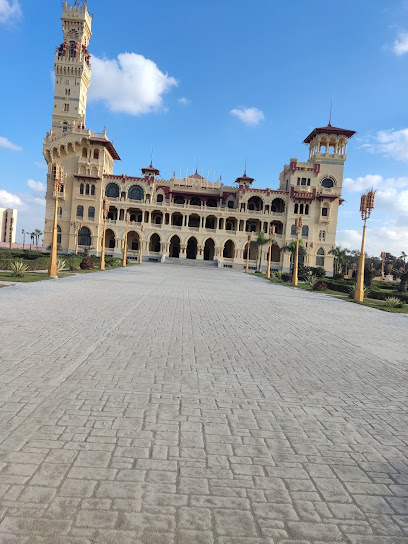
Alexandria Naval Unknown Soldier Memorial
A solemn tribute to Egypt's naval heroes, the Alexandria Naval Unknown Soldier Memorial offers a serene space for reflection on the Corniche.
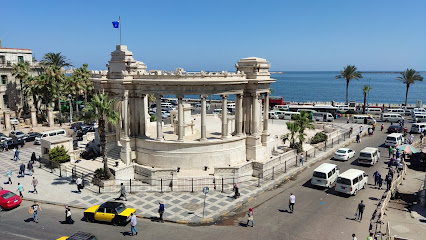
Ancient Roman Theater, Alexandria
Explore Alexandria's Ancient Roman Theater: A journey back in time to witness Roman architecture and cultural heritage in Egypt.
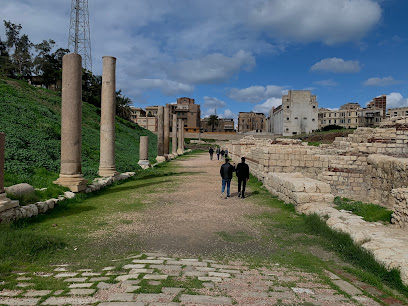
Catacombs of Kom el Shoqafa
Explore the Catacombs of Kom el Shoqafa: A unique blend of Egyptian, Greek, and Roman cultures in Alexandria's ancient burial site.
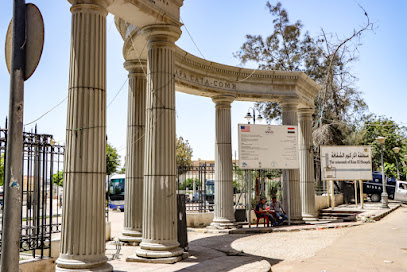
Mahmoud Said Museum
Explore the legacy of Mahmoud Said, a pioneer of modern Egyptian art, in his beautifully preserved Alexandria villa.
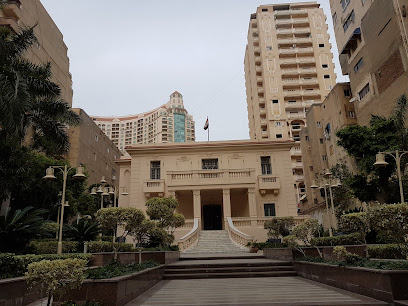
Lighthouse of Alexandria
Explore the legacy of the Pharos of Alexandria, one of the Seven Wonders of the Ancient World, now an underwater archaeological site.
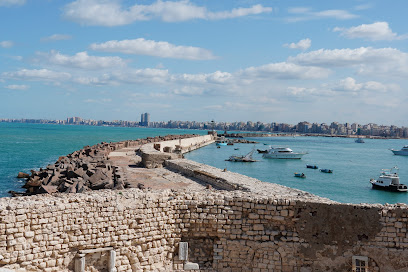
Fouad St
Explore Fouad Street in Alexandria, a historic thoroughfare blending ancient roots with stunning architecture and vibrant cultural experiences.
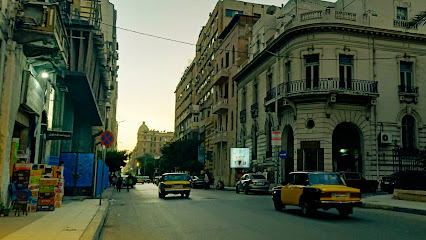
Villa of the birds
Explore the exquisite mosaics of the Villa of the Birds in Alexandria, a remarkably preserved glimpse into Roman-era artistry and culture.
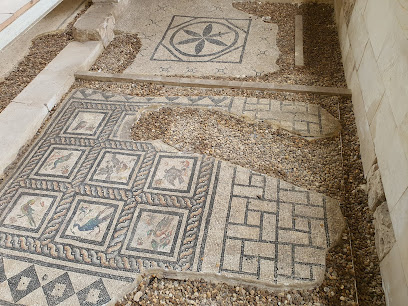
Anfushi Tombs
Explore Alexandria's Anfushi Tombs: A blend of Egyptian & Greco-Roman art, offering a serene glimpse into the city's Hellenistic past.
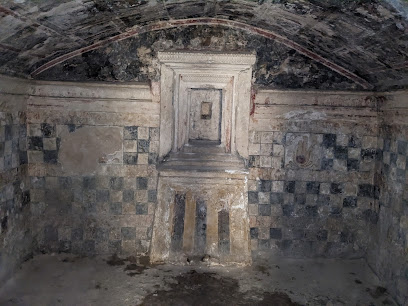
fabulous old building in Al Azaritah
Discover Alexandria's architectural heritage at this fabulous old building in Al Azaritah, a captivating landmark steeped in history and culture.
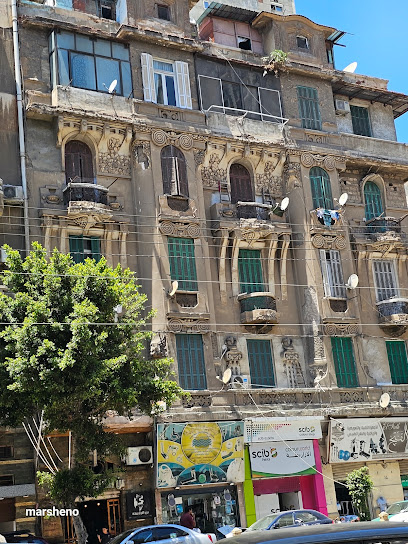
Unmissable attractions to see
Alexandria Naval Unknown Soldier Memorial
Explore the Alexandria Naval Unknown Soldier Memorial, a serene tribute to the bravery of naval soldiers, amidst Alexandria's rich maritime history.
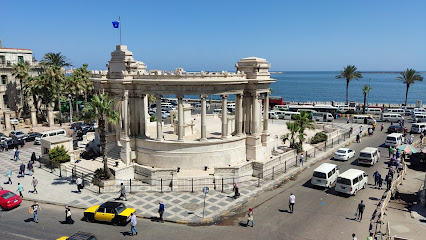
kouta park
Experience endless fun at Kouta Park, Alexandria's premier amusement park, with thrilling rides and beautiful surroundings for all ages.
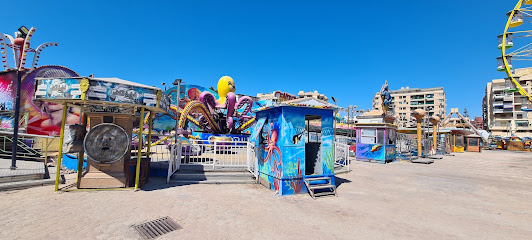
Shāţi' al Anfūshī
Explore the tranquil shores of Shāṭi' al Anfūshī, a beautiful beach in Alexandria, perfect for sunbathing, swimming, and savoring local Egyptian cuisine.
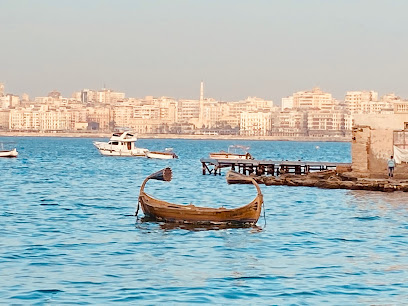
Tamr Henna Musem & Restaurant
Discover the rich culture of Alexandria at Tamr Henna Museum & Restaurant, where art meets authentic Egyptian cuisine in an unforgettable setting.

Lighthouse of Alexandria
Explore the historic Lighthouse of Alexandria, a marvel of ancient engineering and a symbol of Alexandria's rich maritime heritage.
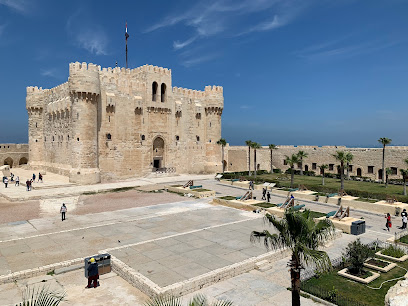
Jewel Festival
Experience the enchanting Jewel Festival in Alexandria, where artistry, culture, and local heritage come together in a vibrant celebration.
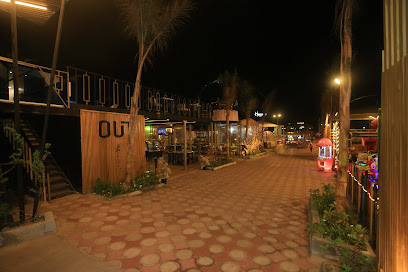
Anfushi Tombs
Explore the Anfushi Tombs in Alexandria, Egypt, a serene shrine showcasing ancient burial practices and stunning Hellenistic architecture.
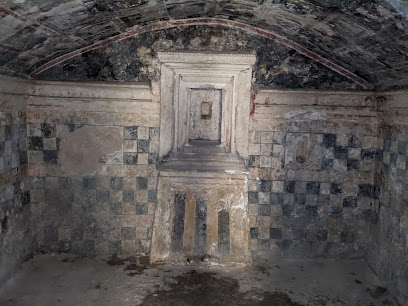
Eastern harbor
Discover the enchanting Eastern Harbor of Alexandria, a historical landmark where ancient maritime treasures meet breathtaking Mediterranean views.
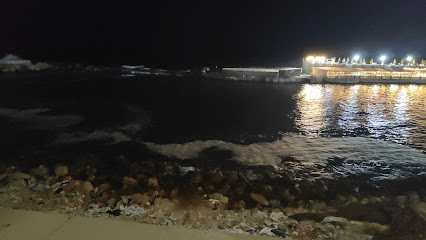
Essential places to dine
Zephyrion restaurant , Abu Qir, Alexandria
Experience exquisite seafood dining at Zephyrion Restaurant in Abu Qir, Alexandria – where every dish celebrates local flavors and oceanic beauty.
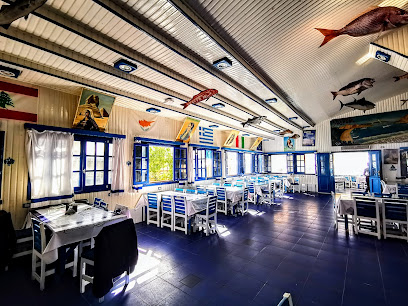
White & Blue - Greek Nautical Club
Discover authentic Greek flavors and fresh seafood at White & Blue - Greek Nautical Club with stunning views of the Mediterranean Sea.
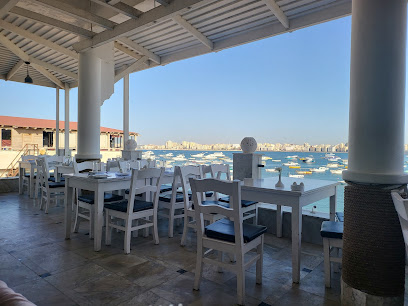
Basilico
Discover Basilico in Alexandria: Authentic Italian cuisine awaits with delicious pasta dishes and mouthwatering pizzas in a cozy atmosphere.
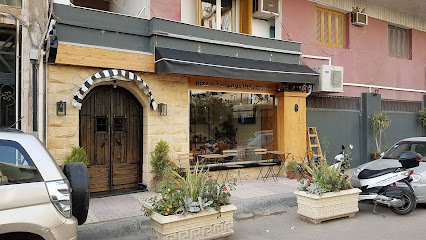
Focacciaria
Discover Focacciaria in Alexandria - indulge in authentic Italian pizzas and cozy coffee moments amidst rich cultural experiences.
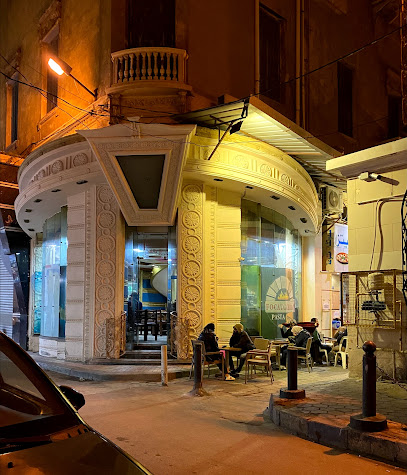
Jeeda's
Discover Jeeda's: A premier restaurant in Alexandria offering delectable Mediterranean dishes and vibrant tapas in a cozy setting.
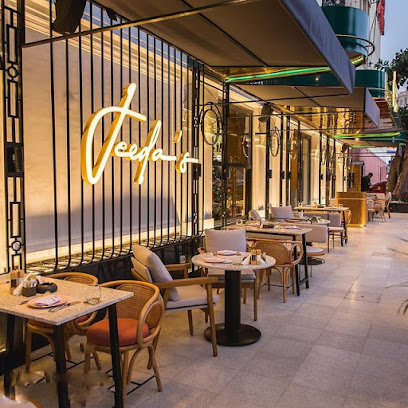
SeaSide
Savor exquisite seafood at SeaSide in Alexandria - where fresh flavors meet stunning coastal views.
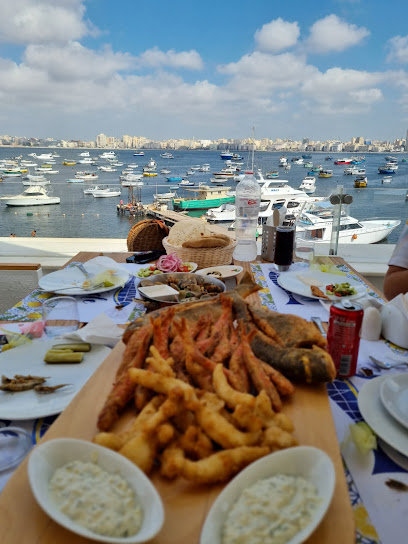
Santa Lucia
Experience the essence of Mediterranean cuisine at Santa Lucia in Alexandria—where every dish is a celebration of flavor and tradition.
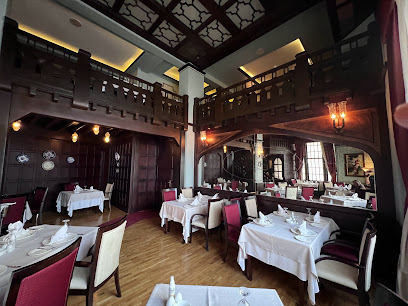
Sky view restaurant Le Metropole hotel
Experience fine dining like never before at Sky View Restaurant in Le Metropole Hotel, where exquisite cuisine meets breathtaking views of Alexandria.
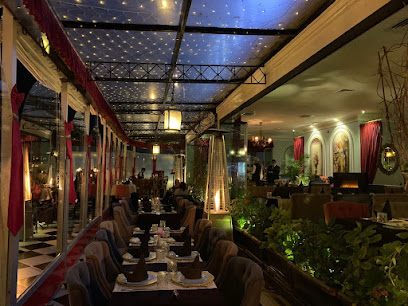
Bella Vita Restaurant
Experience exquisite dining at Bella Vita Restaurant in Alexandria – where traditional flavors meet modern elegance.
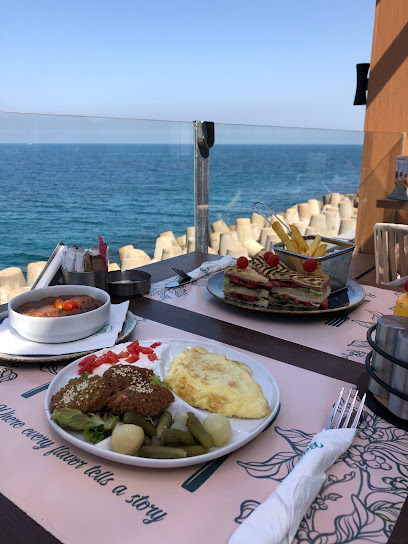
Dough
Experience authentic Italian cuisine at Dough in Alexandria's historic Bahary Citadel area – where every dish tells a story.
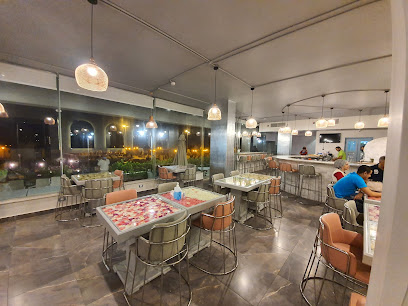
Markets, malls and hidden boutiques
City Centre Alexandria
Experience the best of shopping, dining, and entertainment at City Centre Alexandria, a must-visit destination for every tourist.
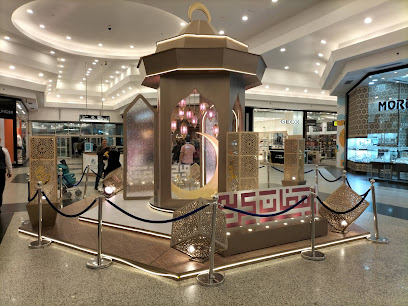
San Stefano Grand Plaza
Explore San Stefano Grand Plaza, Alexandria's premier shopping destination, where luxury meets local charm in a vibrant coastal atmosphere.
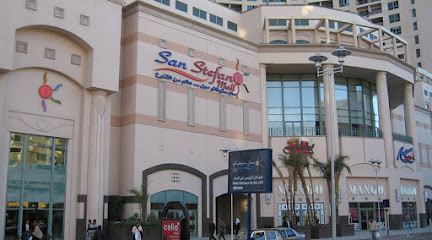
Spade giftshop
Explore Spade Giftshop in Alexandria for unique gifts and local crafts that capture the essence of Egyptian culture.
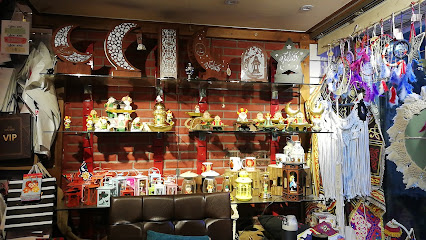
Or
Discover the unique fashion scene at Or Clothing Store, a stylish destination in Alexandria's vibrant San Stefano district, perfect for every tourist's wardrobe.
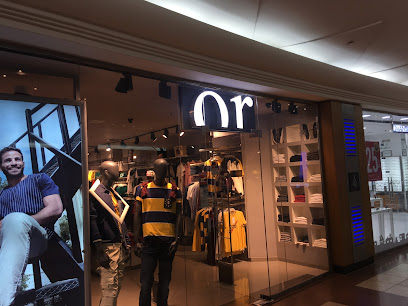
Fourteen Scarf
Discover the elegance of women's fashion at Fourteen Scarf in Alexandria, where style meets sophistication in every collection.
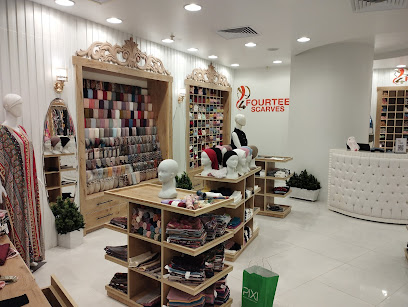
Feri Wow Gift Shop
Explore Feri Wow Gift Shop in Alexandria for unique gifts and souvenirs that capture the city's vibrant culture and charm.
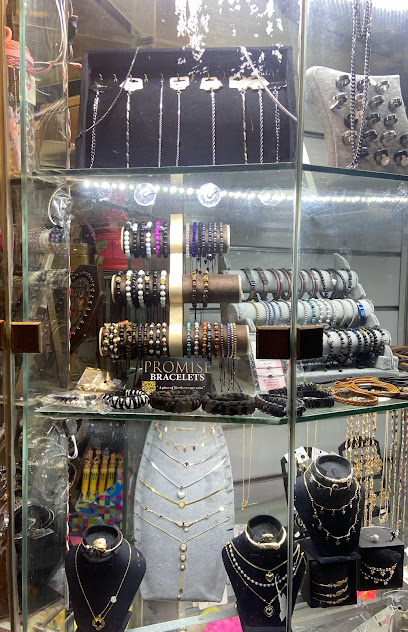
Itemz Gift Shop
Explore the charm of Alexandria at Itemz Gift Shop, where unique souvenirs and local treasures await every traveler.
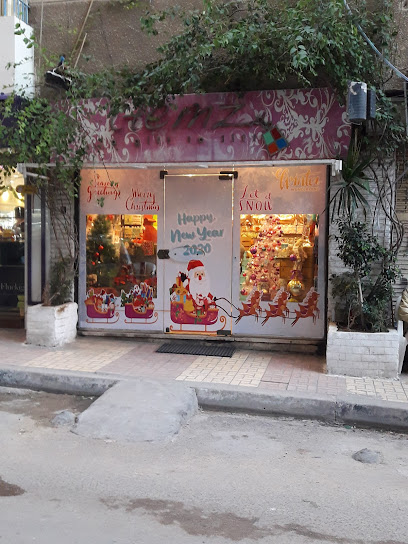
FASHION HOUSE AFIONA
Discover exquisite bags at Fashion House Afiona in Alexandria, where style meets quality in a chic shopping experience.
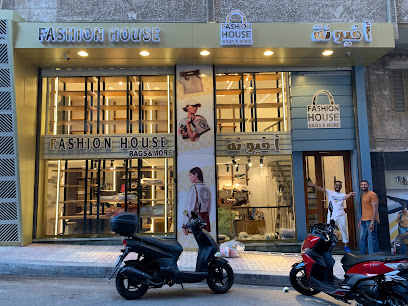
FashOnFire
Dive into Alexandria's fashion scene at FashOnFire, where trendy styles meet affordability for the ultimate shopping experience.

Offtr
Discover exquisite craftsmanship and unique jewelry pieces at Offtr, a charming jeweler in Alexandria, reflecting the city's rich cultural heritage.

Essential bars & hidden hideouts
Deja Vu
Discover the authentic flavors of Alexandria at Deja Vu, a top-rated grill restaurant offering a cozy atmosphere and delicious local cuisine.
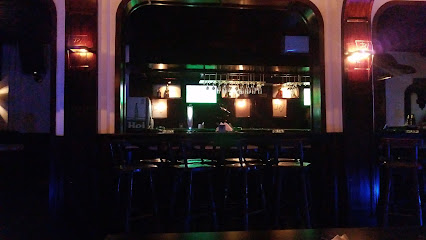
The Pint Bar
Discover the vibrant nightlife of Alexandria at The Pint Bar, where great drinks and a lively atmosphere await.
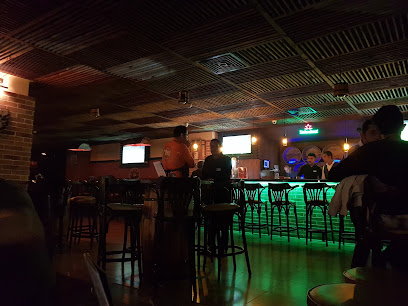
NEO Lounge Alexandria
Discover NEO Lounge Alexandria, where vibrant nightlife, delicious drinks, and unforgettable entertainment await you on the Mediterranean coast.
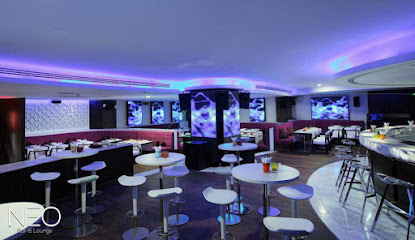
Le Bar
Experience the elegance of Le Bar in San Stefano, Alexandria—an exceptional lounge and wine bar offering exquisite drinks and gourmet dining.
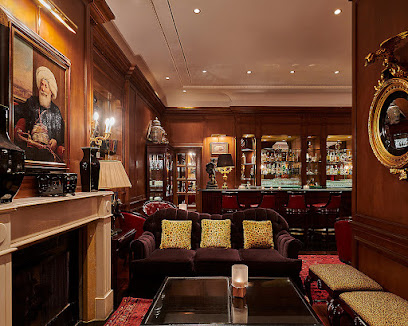
نفرتيتى
Experience the vibrant nightlife at نفرتيتى, Alexandria's premier bar offering refreshing drinks and a lively atmosphere.

Hooliganseg
Experience the thrill of sports at Hooliganseg, Alexandria's premier sports bar and lounge serving delicious food and drinks in a vibrant atmosphere.
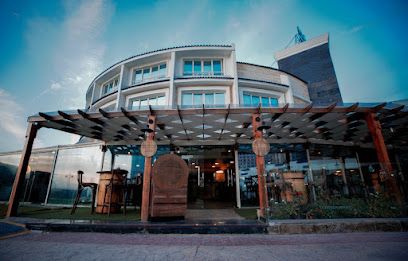
Nefertiti bar
Experience the vibrant nightlife at Nefertiti Bar in Alexandria, where every sip and moment connects you to the local culture and warm hospitality.
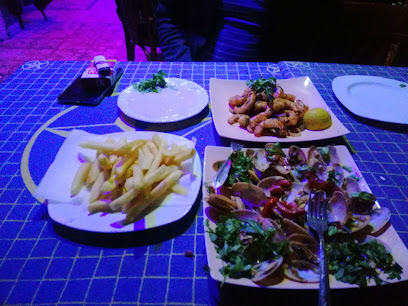
Hoodz Lounge
Experience the vibrant nightlife of Alexandria at Hoodz Lounge, where stylish decor meets exceptional service and a lively atmosphere.
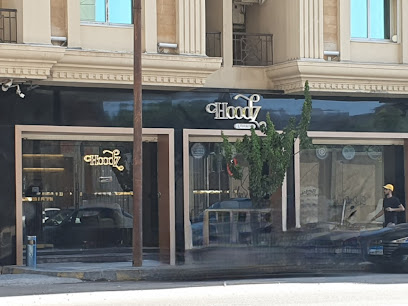
Bar and nightclub Mirage
Dive into the electrifying nightlife of Alexandria at Mirage Bar and Nightclub, where unforgettable nights and vibrant energy await.
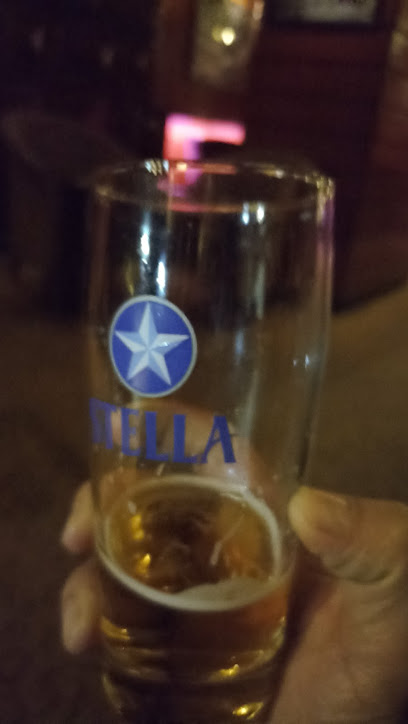
Alexandr Restaurant &Bar
Discover Alexandr Restaurant & Bar, Alexandria's premier cocktail destination offering a unique blend of local flavors and vibrant nightlife atmosphere.
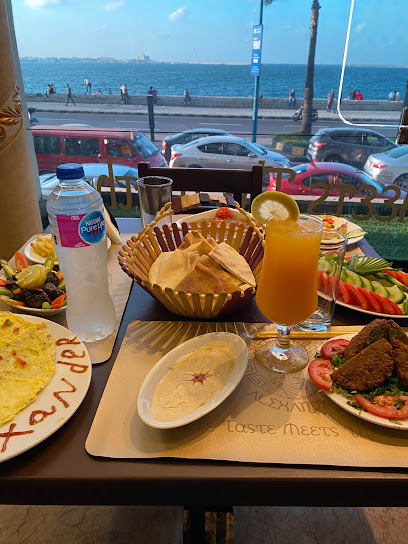
Local Phrases
-
- Helloمرحبا
[marhaba] - Goodbyeوداعا
[wada'an] - Yesنعم
[na'am] - Noلا
[la] - Please/You're welcomeمن فضلك
[min fadlik] - Thank youشكرا
[shukran] - Excuse me/Sorryعذرا
[a'zra] - How are you?أزي الحال؟
[ezay el hal?] - Fine. And you?تمام. وأنت؟
[tamam. wa anta?] - Do you speak English?هل تتحدث الإنجليزية؟
[hal tatahadath al ingilizia?] - I don't understandأنا لا أفهم
[ana la afham]
- Helloمرحبا
-
- I'd like to see the menu, pleaseأود أن أرى القائمة، من فضلك
[awad an ara al qaimah, min fadlik] - I don't eat meatأنا لا آكل اللحوم
[ana la akol al lahoom] - Cheers!في صحتك!
[fi sahtak!] - I would like to pay, pleaseأود أن أدفع، من فضلك
[awad an adfa', min fadlik]
- I'd like to see the menu, pleaseأود أن أرى القائمة، من فضلك
-
- Help!النجدة!
[al nijda!] - Go away!انصرف!
[insraf!] - Call the Police!اتصل بالشرطة!
[atasil bialshurta!] - Call a doctor!اتصل بالطبيب!
[atasil bialtabib!] - I'm lostلقد ضللت الطريق
[laqad dalalt altariq] - I'm illأنا مريض
[ana mareed]
- Help!النجدة!
-
- I'd like to buy...أود أن أشتري...
[awad an ashtari...] - I'm just lookingأنا فقط أتطلع
[ana faqat attala] - How much is it?كم هو ثمنه؟
[kam hu thamanuh?] - That's too expensiveهذا غالي جدا
[hatha ghali jiddan] - Can you lower the price?هل يمكنك تخفيض السعر؟
[hal yumkinuk takhfid alsu'r?]
- I'd like to buy...أود أن أشتري...
-
- What time is it?كم الساعة؟
[kam al sa'ah?] - It's one o'clockالساعة الواحدة
[al sa'ah al wahidah] - Half past (10)العاشرة والنصف
[al ashrah wan nisf] - Morningالصباح
[assabah] - Afternoonالظهر
[adhuhr] - Eveningالمساء
[almasa] - Yesterdayأمس
[ams] - Todayاليوم
[alyawm] - Tomorrowغدا
[ghadan] - 1واحد
[wahid] - 2اثنان
[ithnan] - 3ثلاثة
[thalathah] - 4أربعة
[arbahah] - 5خمسة
[khamsah] - 6ستة
[sitah] - 7سبعة
[sab'ah] - 8ثمانية
[thamaniah] - 9تسعة
[tis'ah] - 10عشرة
[asharah]
- What time is it?كم الساعة؟
-
- Where's a/the...?أين يوجد...؟
[ayn yujad...?] - What's the address?ما هو العنوان؟
[ma hu al eanwan?] - Can you show me (on the map)?هل يمكنك أن تريني (على الخريطة)؟
[hal yumkinuk an tarini (ala alkhareetah)?] - When's the next (bus)?متى يأتي الحافلة التالية؟
[mata yati al hafilah altaliyah?] - A ticket (to ....)تذكرة (إلى ...)
[tazkirah (ila ...)]
- Where's a/the...?أين يوجد...؟
History of Anfoushi
-
Anfoushi's roots can be traced back to the Ptolemaic period when Alexandria was a bustling center of learning and culture. The area was likely influenced by the nearby Great Library of Alexandria, which attracted scholars from all over the Mediterranean. Anfoushi, with its proximity to the ancient harbor, played a role in maritime trade and the exchange of ideas.
-
During the Roman Empire, Anfoushi became increasingly important as a residential area for the city's growing population. The Romans built various structures, including baths and villas, which reflected the cultural melting pot that Alexandria represented. The area's architecture from this period showcases a blend of Greek and Roman styles.
-
With the Islamic conquest of Alexandria in the 7th century, Anfoushi experienced significant cultural transformations. The introduction of Islamic architecture is evident in the mosques and public buildings that were constructed, symbolizing the neighborhood's adaptation to new social and religious norms. The local markets flourished, becoming vibrant centers for trade and community life.
-
The 19th century marked a period of modernization for Anfoushi and Alexandria as a whole. Under the rule of Muhammad Ali Pasha, extensive urban planning and infrastructure development took place. The neighborhood saw the introduction of new educational institutions and public amenities, reflecting the broader modernization efforts throughout Egypt.
-
Throughout the 20th century, Anfoushi became a cultural melting pot, attracting diverse communities, including Greeks, Italians, and Armenians. This diversity is reflected in the local cuisine, festivals, and daily life. The area is renowned for its seafood markets and restaurants, which serve as a testament to its maritime heritage.
Anfoushi Essentials
-
Anfoushi is conveniently located in the heart of Alexandria, making it easily accessible from other neighborhoods. You can take a taxi or use ride-hailing apps like Uber for a direct route. Public transport options include the tram, which runs along the Corniche, connecting Anfoushi to areas like Raml Station and Moharram Bey. Buses and microbuses also operate throughout the city, with several routes stopping near Anfoushi.
-
Anfoushi is best explored on foot due to its compact size. The waterfront promenade is pedestrian-friendly and offers beautiful views. For longer distances, taxis and ride-hailing services are available. Public buses and trams provide additional options for reaching nearby neighborhoods. Bicycles can be rented from various shops, but be cautious of traffic and road conditions.
-
Anfoushi is generally safe for tourists, but like any urban area, it is wise to stay vigilant, especially in crowded places. Avoid walking alone late at night and watch your belongings closely. While there are no specific high-crime areas targeting tourists, areas around the harbor can be less secure after dark. Always use registered taxis or reputable ride-hailing apps.
-
In case of an emergency, dial 123 for medical assistance or 122 for police. Familiarize yourself with the location of the nearest hospital, such as the Alexandria University Hospital. It’s advisable to carry a local SIM card for easy communication. Travel insurance that covers health emergencies is also recommended.
-
Fashion: Do dress modestly, particularly when visiting religious sites, and avoid wearing revealing clothing. Religion: Do respect local customs and practices, including dressing appropriately when entering mosques and churches. Public Transport: Do offer your seat to the elderly and pregnant women; don’t eat or drink in public transport. Greetings: Do greet locals with a handshake; don’t initiate physical contact with the opposite sex unless invited. Eating & Drinking: Do try local dishes and accept food offers; don’t waste food or refuse hospitality, as it may be seen as disrespectful.
-
To experience Anfoushi like a local, visit the bustling fish market for fresh seafood and engage with vendors. Explore the nearby historical sites, such as the Citadel of Qaitbay, and try local delicacies from street food vendors, particularly at night. Interacting with locals can provide valuable insights into the neighborhood's culture and history. Additionally, attending local festivals can offer a unique glimpse into the community's traditions.
Nearby Cities to Anfoushi
-
Things To Do in Tanta
-
Things To Do in Zagazig
-
Things To Do in Cairo
-
Things To Do in Damietta
-
Things To Do in Port Said
-
Things To Do in Ismailia
-
Things To Do in Beni Suef
-
Things To Do in Suez
-
Things To Do in Minya
-
Things To Do in Ashdod
-
Things To Do in Kato Paphos
-
Things To Do in Paphos
-
Things To Do in Asyut
-
Things To Do in Beersheba
-
Things To Do in Pissouri








